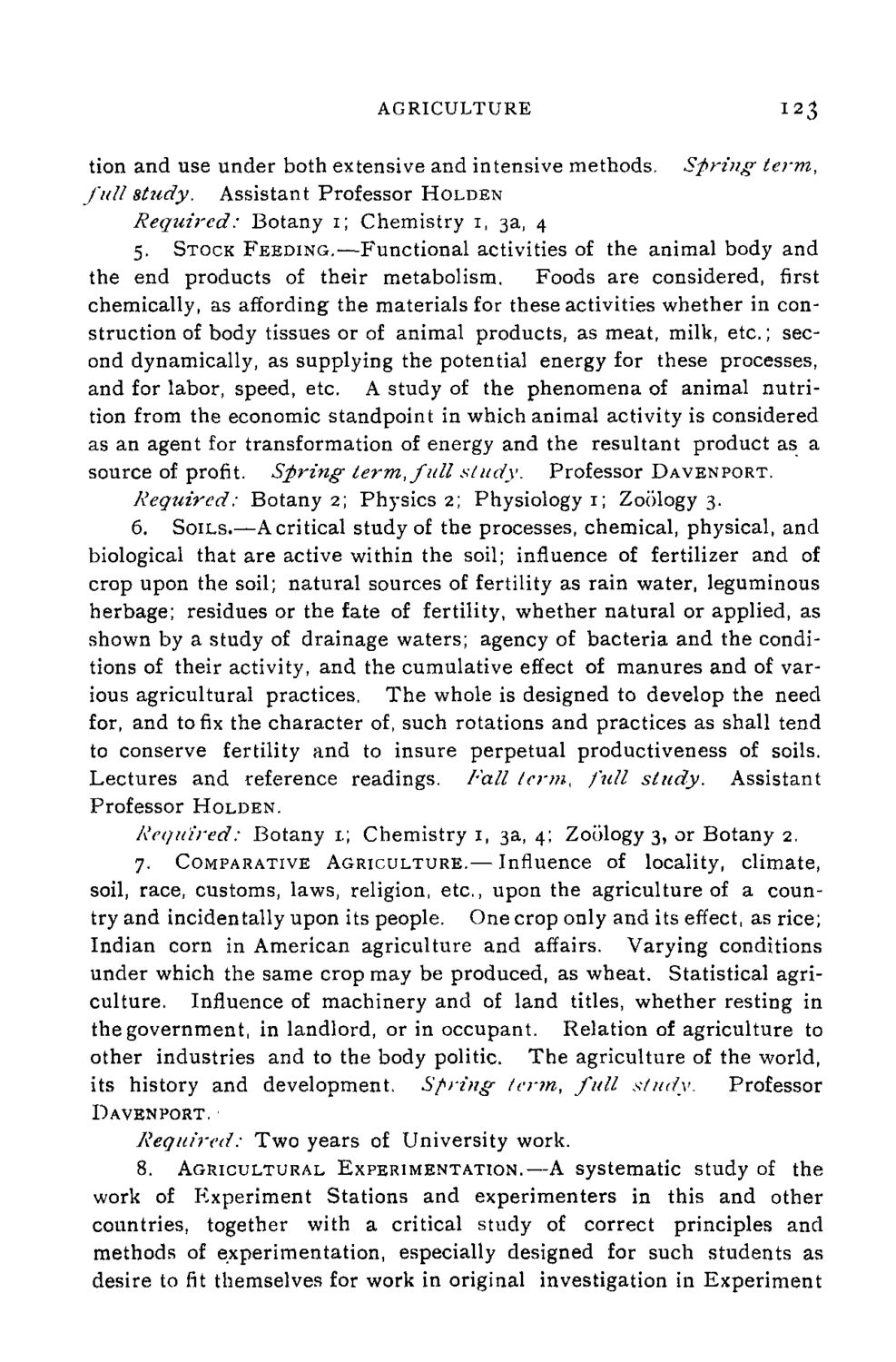| |
| |
Caption: Course Catalog - 1896-1897
This is a reduced-resolution page image for fast online browsing.

EXTRACTED TEXT FROM PAGE:
AGRICULTURE 123 tion and use under both extensive and intensive methods. Spring term, full study. Assistant Professor HOLDEN Required: Botany 1; Chemistry 1, 3a, 4 5. STOCK FEEDING.—Functional activities of the animal body and the end products of their metabolism. Foods are considered, first chemically, as affording the materials for these activities whether in construction of body tissues or of animal products, as meat, milk, etc.; second dynamically, as supplying the potential energy for these processes, and for labor, speed, etc. A study of the phenomena of animal nutrition from the economic standpoint in which animal activity is considered as an agent for transformation of energy and the resultant product as a source of profit. Spring term, full study. Professor DAVENPORT. Required: Botany 2; Physics 2; Physiology 1; Zoology 3. 6. SOILS.—A critical study of the processes, chemical, physical, and biological that are active within the soil; influence of fertilizer and of crop upon the soil; natural sources of fertility as rain water, leguminous herbage; residues or the fate of fertility, whether natural or applied, as shown by a study of drainage waters; agency of bacteria and the conditions of their activity, and the cumulative effect of manures and of various agricultural practices. The whole is designed to develop the need for, and tofixthe character of, such rotations and practices as shall tend to conserve fertility and to insure perpetual productiveness of soils. Lectures and reference readings. Fall term, full study. Assistant Professor HOLDEN. Required: 7. Botany 1; Chemistry 1, 3a, 4; Zoology 3, or Botany 2, locality, climate, COMPARATIVE AGRICULTURE.— Influence of soil, race, customs, laws, religion, etc., upon the agriculture of a country and incidentally upon its people. One crop only and its effect, as rice; Indian corn in American agriculture and affairs. Varying conditions under which the same crop may be produced, as wheat. Statistical agriculture. Influence of machinery and of land titles, whether resting in the government, in landlord, or in occupant. Relation of agriculture to other industries and to the body politic. The agriculture of the world, its history and development. Spring term, full study. Professor DAVENPORT, Required: 8. Two years of University work. the AGRICULTURAL EXPERIMENTATION.—A systematic study of work of Experiment Stations and experimenters in this and other countries, together with a critical study of correct principles and methods of experimentation, especially designed for such students as desire to fit themselves for work in original investigation in Experiment
| |